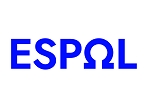Présentation
This course will offer a combination of lecture, discussion and horizontal learning opportunities designed to give students a broad overview of agriculture and food systems on a global scale. Students will learn about the advent and spread of industrial agriculture and its ecological, social and political implications. They will learn about Agroecology as an alternative to the industrial system, including its ecological methodologies and its origins in global social movements. Throughout, students will gain an understanding of the intersections of agriculture, climate change, and equity. Students will complete group projects that will provide the cohort with examples of how agriculture and food systems function around the world.
Class 1. Introduction: Building a Collective Understanding of Agriculture and Food Systems
Class 2. The Advent of Industrial Agriculture: Colonization and The US Context
Class 3. Reading Group: A Deeper Dive Into the Advent and Spread of Industrial Agriculture in the United States
Class 4. The Politics and International Spread of a Corporate, Industrial Agriculture
Class 5. What is Agroecology and Can it Feed Us?
Class 6. Reading Group: A Deeper Dive Into a Transformative Agroecology
Class 7.
- PART 1. Methodological Principles of Agroecology: Soil, Water and Biodiversity
- PART 2. The Global Protein Craving: Fisheries and Livestock
Class 8.
- PART 1. Urban Agriculture
- PART 2. Flower Farming at all Scales
- PART 3. Food Movements - Food Justice, Food Sovereignty, Food Workers and Farmworkers
Class 9. Boots on the Ground: What does farming look like?
Modalités
Course Requirements:
Students are expected to come to class having read all assigned readings by the day they
appear on the syllabus and be prepared to discuss them critically. Readings are linked in the
syllabus or can be found in Google Drive. Students will submit a combined ½-1 page critical
reading reflection before each class meeting on the assigned topic for the week in the
designated Google Drive folder. Students will complete a group project to be presented on the
final day of class.
Grading:
Attendance and Participation in Class - 35%
Reading Reflections - 35%
Final Presentation & Report - 30%
Ressources
|| <ul> </ul>






